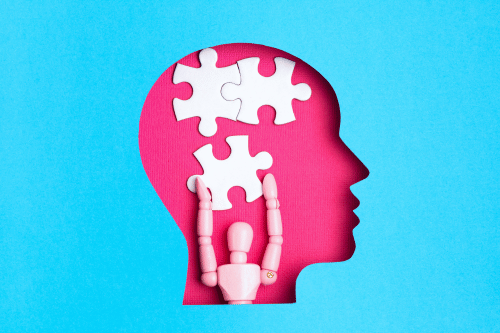Understanding The Potential Side Effects Of Ketamine Infusion
Ketamine infusion therapy has emerged as a promising treatment for various conditions, including chronic pain and depression. However, like any medical treatment, ketamine infusions come with potential side effects that patients should be aware of. This article aims to provide a comprehensive overview of the side effects of ketamine infusion, helping you make an informed decision about your treatment options.
What is Ketamine?
Ketamine is a medication primarily used for starting and maintaining anesthesia. IV ketamine is also used in treatment-resistant depression, providing an alternative when traditional therapies are ineffective. It induces a trance-like state while providing pain relief, sedation, and memory loss. Recently, ketamine has been recognized for its off-label use in treating chronic pain and depression, offering relief when other treatments have failed.
Common Side Effects of Ketamine Infusion

Immediate Side Effects
During or shortly after a ketamine infusion, patients may experience immediate side effects. These are typically short-lived and subside once the infusion is complete.
-
Nausea and Vomiting: One of the most common immediate side effects is nausea, sometimes accompanied by vomiting.
-
Dizziness: Patients often report feeling dizzy or lightheaded during and after the infusion.
-
Increased Heart Rate and Blood Pressure: Ketamine can cause a temporary increase in heart rate and blood pressure, which usually normalizes soon after the infusion.
-
Hallucinations: Some patients may experience hallucinations or vivid dreams, which are generally short-lived and resolve after the infusion ends.
-
Allergic Reaction: In rare cases, patients may experience an allergic reaction, which could be severe. Although extreme outcomes are rare, it is important to monitor for any signs of an allergic reaction during the infusion.
Short-Term Side Effects
Short-term side effects may last from a few hours to a couple of days post-infusion.
-
Fatigue: It’s common to feel tired or fatigued following a ketamine infusion. Rest is often recommended.
-
Headaches: Some patients report mild to moderate headaches after the treatment.
-
Mood Changes: Short-term mood swings or changes in emotional state can occur but usually resolve within a day or two.
-
Depressive Symptoms: It is important to monitor and communicate any emerging depressive symptoms to your healthcare provider, as these can be a potential short-term side effect.
Long-Term Side Effects
Understanding the long-term impact of ketamine infusions
While ketamine infusions are generally considered safe, there are potential long-term side effects that patients should be aware of. One significant concern is ketamine misuse, particularly in home settings. As a controlled substance, ketamine carries risks of dependence and adverse effects, especially for individuals with a history of substance use disorders. Misuse is on the rise in the U.S., and improper use can lead to severe health complications.
Additionally, ketamine treatment has shown promise in treating major depressive disorder, offering unique mechanisms of action compared to traditional medications. This therapy can be particularly effective for individuals suffering from treatment-resistant depression and other mood disorders, including bipolar disorder.

Cognitive Impairment
Memory Issues: Some patients report difficulties with short-term memory following repeated ketamine infusions. Medical professionals play a crucial role in monitoring these cognitive side effects to ensure patient safety and proper dosage.
Concentration Problems: There may be challenges with concentration and attention span, particularly with long-term use.
Bladder and Urinary Issues
-
Cystitis: Chronic use of ketamine has been linked to cystitis, a condition that causes inflammation of the bladder.
-
Frequent Urination: Patients may experience an increased need to urinate, sometimes accompanied by pain.
Dependence and Tolerance
-
Dependency: There is a risk of developing a psychological dependence on ketamine, especially with prolonged use.
-
Tolerance: Over time, the body may build a tolerance to ketamine, requiring higher doses to achieve the same therapeutic effect.
Side Effects of Ketamine Infusion for Pain
When used for pain management, ketamine infusions offer significant relief, but they also come with their own set of side effects. A low dose ketamine infusion can be an effective option for pain management with fewer side effects.
Pain Relief vs. Side Effects
-
Effective Pain Relief: Many patients experience substantial pain relief, which can improve quality of life.
-
Potential for Increased Pain Sensitivity: In some cases, patients may develop increased sensitivity to pain, known as hyperalgesia.
Interaction with Other Medications and High Blood Pressure
-
Medication Interactions: Ketamine can interact with other medications, potentially leading to increased side effects or reduced effectiveness of either treatment.
Ketamine Side Effects in Mental Health Treatment
Ketamine infusions are also used for treating mental health conditions such as depression and PTSD. Ketamine therapy is an innovative treatment for these conditions, offering new hope for patients. The side effects in these cases can differ slightly from those experienced in pain management. Additionally, ketamine therapy has shown promise for individuals with treatment-resistant depression, providing potential benefits where traditional antidepressants have failed.
Psychological Side Effects
-
Mood Swings: While ketamine can significantly improve mood, it can also cause mood swings in some patients.
-
Anxiety: Some patients may experience increased anxiety during or after treatment.
Neuropsychiatric Effects
-
Dissociation: Feelings of dissociation or detachment from reality are common but usually temporary.
-
Psychosis: There is a rare risk of inducing psychotic symptoms, particularly in individuals with a history of mental health disorders.
Managing the Side Effects
Managing the side effects of ketamine infusions involves a combination of medical supervision, lifestyle adjustments, and, in some cases, additional medications. It is crucial to emphasize that ketamine infusion therapy requires personalized treatment plans and close medical supervision to ensure safety and effectiveness.

Medical Supervision
-
Close Monitoring: Regular follow-ups with your healthcare provider can help manage and mitigate side effects.
-
Dose Adjustment: Adjusting the dosage or frequency of infusions can reduce the risk of severe side effects.
Lifestyle Adjustments
-
Diet and Hydration: Maintaining a healthy diet and staying hydrated can help manage nausea and other gastrointestinal side effects.
-
Rest and Relaxation: Ensuring adequate rest post-infusion can help alleviate fatigue and headaches.
Medications
-
Anti-Nausea Medications: Your doctor may prescribe anti-nausea medications to manage this common side effect.
-
Pain Relievers: Over-the-counter pain relievers can help manage headaches and other mild pain.
Conclusion
Ketamine infusions offer promising treatment options for chronic pain, depression, and other conditions. However, understanding the potential side effects is crucial for making an informed decision. By being aware of the immediate, short-term, and long-term side effects, as well as how they differ depending on the condition being treated, patients can better prepare for and manage these effects. Always consult with your healthcare provider to tailor the treatment to your specific needs and to ensure the best possible outcomes.
Seeking Treatment? We Can Help!
We work with PPO Out of Network Health Insurance Policies
If you or a loved one are struggling with mental health challenges or substance abuse, reach out to Mountain Sky Recovery today. Our team of compassionate professionals is here to support your journey towards lasting well-being. Give us a call at 951-877-5868.
FAQs For The Side Effects Of Ketamine Infusion
1. What are the most common side effects experienced during a ketamine infusion?
During the infusion itself, you may experience dissociation (a feeling of detachment from reality), mild visual or auditory hallucinations, changes in perception of time and space, nausea, and/or dizziness. These effects typically subside shortly after the infusion ends.
2. Are there any potential long-term side effects associated with ketamine infusion therapy?
While rare, some individuals may experience lingering cognitive effects, such as difficulty concentrating or memory problems, for a few days after treatment. In very rare cases, repeated ketamine use has been linked to bladder problems or an increase in blood pressure. However, when administered under medical supervision, the risk of long-term complications is minimal.
3. How does my medical history and current medication affect my experience with ketamine infusion?
Certain medical conditions, such as uncontrolled high blood pressure or a history of psychosis, may increase the risk of adverse reactions. It’s essential to discuss your complete medical history and any medications you’re currently taking with your healthcare provider before undergoing ketamine infusion therapy. This allows for personalized treatment planning and minimizes the potential for complications.
4. What can I do to manage any side effects I may experience after a ketamine infusion?
If you experience any discomfort or lingering effects after your infusion, it’s crucial to communicate this to your healthcare provider. They can offer advice on managing symptoms, adjust your treatment plan if necessary, and provide reassurance. Remember, it’s always better to err on the side of caution and seek medical guidance if you have any concerns about your experience with ketamine infusion.




